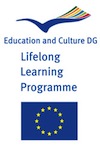Progress in implementation
The notion of Lifelong Learning had its first real push forward in 1995 with a White Paper of the European Commission entitled "Teaching and Learning. Towards a Learning Society". This document contained a number of recommendations and proposals. Various European developments in education and training were referred to in this White paper. It argued for example that "accreditation systems would have to take account of the variety of possible learning routes, locations and means", that there should be development of a European system for the accreditation of technical and vocational competences, extension of mutual recognition of course credits, recognition of knowledge acquired through work experience... Even if they have not been implemented as suggested in the White paper, the seeds were planted.
This LLL strategy was confirmed by the launch in 1996 of the European Year of Lifelong Learning. The aim of the European year was "to set in motion wide ranging discussions at European, national, regional and local level as to ways and means of implementing a policy of lifelong learning". This gave a decisive stimulus to the development of a global strategy. It demonstrated that common interest and commitment existed at all educational levels, "reflecting a consensus on the need to increase and consolidate educational activity" ("Implementation, results and overall assessment of the European Year of Lifelong Learning", Report from the Commission of the European communities, on 15 September 1999).
The European Parliament supported the developments opened up, underlining the opportunities offered by the lifelong learning policy to ensure social integration and achieve equal opportunities.
From this point, lifelong learning became a common guiding principle from European programmes in education, training and youth sectors, and progressively the notion was embedded in most European documentation.
Starting from the publication of the Communication of the Commission at the end of 2001, we can classify the documents referring to lifelong learning issues in two categories:
- those which contribute to deepen the reflection on the concept and to strengthen its implementation in practice (and which are not directly linked to Bologna or Copenhagen processes);
- those which use lifelong learning as the context for policy papers and documents promoting new tools or instruments for the European education and Training plans.
In the first category are initiatives which are in direct line with the Commission's objectives. Here we focus on the two main ones:
- the recommendation on key competences for lifelong learning
- the consultation and action plan for Adult Learning
- the lifelong learning programme 2007-2013


.png)
